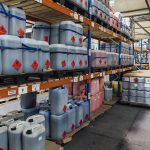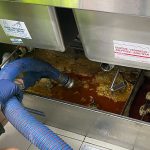Beyond the Pit: Optimising Industrial Wastewater Treatment
The effective treatment of industrial wastewater is essential for maintaining environmental quality and ensuring business compliance with regulatory standards in Australia. While traditional methods like sedimentation and basic filtration continue to serve a purpose, modern challenges in pollution control demand more sophisticated solutions. This article explores the evolution of industrial effluent management, and highlights key innovations in treatment technologies, with a focus on sustainable and practical optimisation.
The Changing Landscape of Industrial Effluent Management
Industrial effluent management in Australia is more than meeting minimum discharge requirements. Stricter environmental laws and greater awareness of sustainability have now shifted the focus towards resource recovery and minimisation of ecological impacts. According to the Australian Government’s National Pollutant Inventory, various industries across the country discharge contaminants including heavy metals, oils, and organic waste that must be treated to avoid harm to natural ecosystems.
Industries such as manufacturing, food processing, and mining generate complex effluents that are challenging to manage, and conventional treatment methods may not adequately remove all of the pollutants, particularly micro-contaminants and some chemical substances. To remain compliant and environmentally responsible, businesses must adopt more effective industrial wastewater treatment strategies that target these pollutants.
Advanced Filtration: A Game-Changer in Industrial Septic Solutions
Advanced filtration methods are increasingly being used to efficiently separate contaminants from wastewater. New technologies such as membrane filtration, microfiltration, nanofiltration, ultrafiltration, and reverse osmosis allow for the precise removal of particles, bacteria, and dissolved solids. These technologies are suitable for industries with variable wastewater loads or those aiming to reuse water in their processes.
For industrial wastewater treatment, advanced filtration systems can reduce the need for chemical treatments, along with sludge production, making operations cleaner and more sustainable. In Australia, where water scarcity can be a concern, the ability to recycle water safely through such systems provides both environmental and economic benefits.
Moreover, recent advancements have made these systems more durable and cost-effective. As a result, by employing them industries can achieve higher compliance levels with lower long-term operational costs.
Advanced Oxidation Processes: Tackling Persistent Pollutants
While some new filtration systems are highly effective, they may not fully degrade all organic compounds or contaminants. This is where advanced oxidation processes (AOPs) become valuable. AOPs utilise chemical reactions, often involving ozone, hydrogen peroxide, and ultraviolet light, to break down pollutants at a molecular level.
These processes are particularly helpful in industrial wastewater treatment scenarios involving toxic or non-biodegradable substances. For example, in the pharmaceutical or chemical manufacturing sectors, AOPs can degrade complex organic compounds that conventional systems might only partially treat.
The integration of AOPs into broader treatment systems enhances effectiveness by ensuring a more complete removal of harmful contaminants. Furthermore, AOPs are compatible with other technologies, allowing industries to implement treatments that address specific effluent challenges while improving overall sustainability.
Optimising for Sustainability and Compliance
The federal government’s Environment Protection and Biodiversity Conservation Act 1999, as well as state-level regulations, mandate strict standards for wastewater discharge., and non-compliance can result in significant penalties, operational downtime, and reputational damage.
To ensure compliance, industries must optimise their industrial effluent management systems, not just for pollutant removal, but also for energy use, maintenance, and reliability. This involves adopting integrated systems that combine physical, chemical, and biological treatments tailored to the specific characteristics of the wastewater.
Sustainability also includes the potential for resource recovery, and modern treatment systems can reclaim water for reuse, capture biogas from anaerobic digestion, or extract valuable by-products like phosphorus. By viewing wastewater as a resource rather than a liability, industries can turn compliance into an opportunity for innovation and cost savings.
The Role of Data and Automation in Treatment Optimisation
Data analytics and automation are transforming how industrial wastewater treatment systems are managed. Smart sensors, remote monitoring, and predictive maintenance tools provide real-time insights, enabling operators to make informed decisions quickly.
These digital tools enhance the performance of solutions by detecting anomalies early, reducing downtime, and optimising chemical dosing and energy use. In sectors where wastewater composition can fluctuate, adaptive control systems ensure consistent treatment outcomes and help maintain regulatory compliance with minimal human intervention.
Incorporating automation also allows for more efficient scaling of operations, making advanced treatment technologies accessible to a broader range of industries, including small to medium-sized enterprises.
Optimising Industrial Wastewater Treatment
As environmental expectations increase and regulations tighten, Australian businesses must look beyond conventional methods to address their wastewater challenges. Advanced technologies such as membrane filtration and oxidation processes offer effective ways to optimise industrial wastewater treatment, supporting sustainability and compliance goals.
Industrial effluent management is a major concern, and with the right combination of innovation, optimisation, and regulatory alignment, businesses can reduce their environmental impact while improving their operational efficiency.
Clarence Valley Septics is committed to delivering industrial solutions tailored to business’s specific operational needs. Contact us today on +61 2 6645 3100 or via our website to find out how we can support your objectives.


